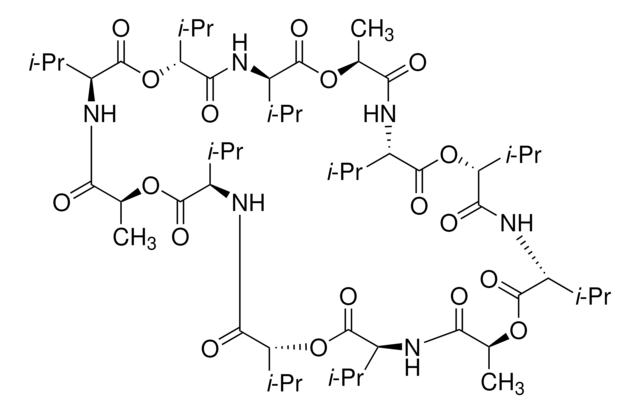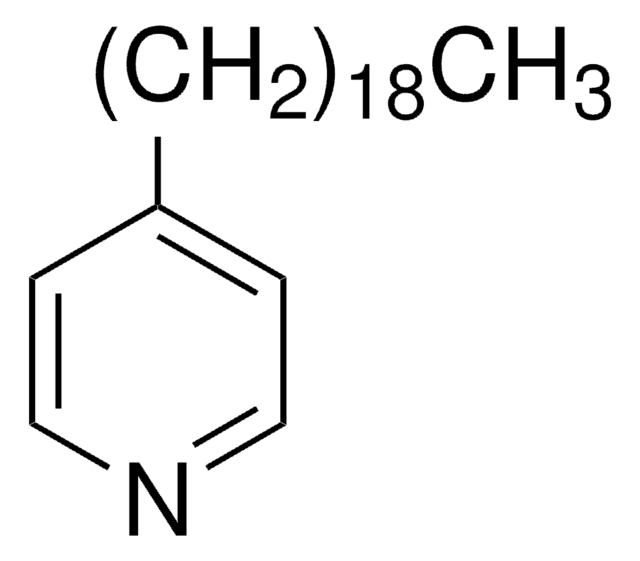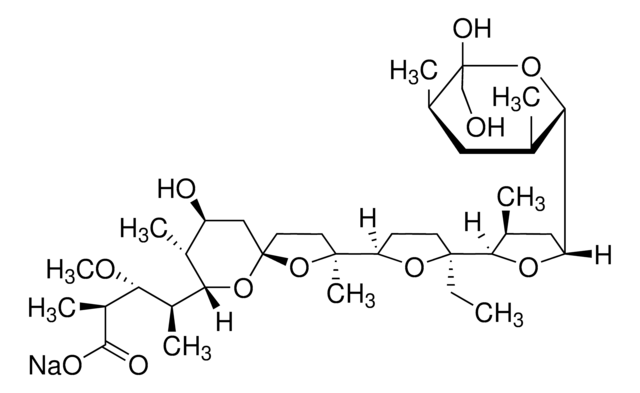Wichtige Dokumente
99311
Kalium-Ionophor I - Cocktail A
Selectophore™
About This Item
Empfohlene Produkte
Produktlinie
Selectophore™
Qualitätsniveau
Form
liquid
Zusammensetzung
Dibutyl sebacate, 68.0 wt. % (84838)
1,2-Dimethyl-3-nitrobenzene, 25.0 wt. % (40870)
Potassium ionophore I, 5.0 wt. % (60403)
Potassium tetrakis(4-chlorophenyl)borate, 2.0 wt. % (60591)
Allgemeine Beschreibung
Anwendung
Verpackung
Sonstige Hinweise
Rechtliche Hinweise
Signalwort
Danger
H-Sätze
Gefahreneinstufungen
Acute Tox. 2 Dermal - Acute Tox. 3 Oral - Aquatic Chronic 2
Lagerklassenschlüssel
6.1A - Combustible acute toxic Cat. 1 and 2 / very toxic hazardous materials
WGK
WGK 3
Flammpunkt (°F)
Not applicable
Flammpunkt (°C)
Not applicable
Persönliche Schutzausrüstung
Eyeshields, Faceshields, Gloves, type ABEK (EN14387) respirator filter
Hier finden Sie alle aktuellen Versionen:
Besitzen Sie dieses Produkt bereits?
In der Dokumentenbibliothek finden Sie die Dokumentation zu den Produkten, die Sie kürzlich erworben haben.
Unser Team von Wissenschaftlern verfügt über Erfahrung in allen Forschungsbereichen einschließlich Life Science, Materialwissenschaften, chemischer Synthese, Chromatographie, Analytik und vielen mehr..
Setzen Sie sich mit dem technischen Dienst in Verbindung.










